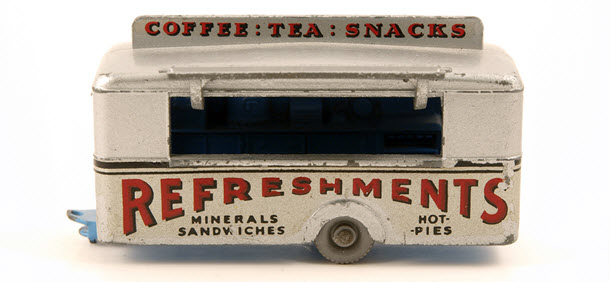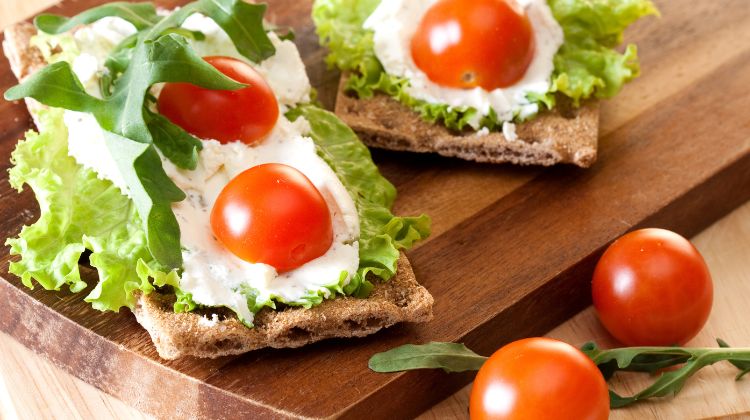If you’re like me, it’s hard to get through the day without having a snack or two. However, it’s what you snack on that makes a difference. I’m hoping that this post will inspire you to re-think what you munch on.
Although it is often recommended to avoid snacks between meals, especially if you want to lose weight, sometimes we need a pick-me-up to give us energy and to avoid low blood sugar which could result in fainting.
Are you sure what you are snacking on is healthy?
The food industry knows that most people love to snack and that’s why grocery stores tempt us with junk food at the checkout counter. Those delicious salty or sweet tasty treats are conveniently packaged, easy to pop in your mouth, and make you cry out for more.
Crackers, Pop-Tarts, Cheese Whiz, candy, pastries, deep-fried chicken nuggets, instant Ramen. . . oh, my!
Then there’s the so-called “health food” aisle. That’s where you will find packaged snack foods with health-conscious names but they can also be also loaded with garbage. Take your fried kale chips and power bars and replace them with honest-to-goodness, healthy . . . REAL FOOD.
Eat these 12 snack foods to keep your body fueled
The yummy items listed below are full of nutrition. Keep them on hand in your fridge. It will save you time, and money, and help to increase your longevity.
1. Raw almonds and other nuts
Raw almonds and nuts such as walnuts and hazelnuts are among the world’s healthiest snack foods especially when they’re raw. Nuts contain healthy fat, fiber, protein, magnesium, and vitamin E. This helps to protect your artery walls from damage, build strong bones & teeth, regulate blood sugar, and insulin, and keep your brain healthy.
Eating nuts regularly will reduce your blood pressure, and lower blood sugar and cholesterol levels. Because they are calorie dense they will keep you from feeling hungry longer.
However, you can over-indulge on nuts so it’s best to limit your serving to about 7-12 nuts per day. Divvy up handfuls into snack bags or small reusable containers so you don’t go overboard.
2. Olives
Olives contain oleic acid, which is a mono-saturated fat. Like nuts, they help lower cholesterol. The oil from olives will help strengthen your bones and increase marrow growth. They balance your metabolism and fight oxidation, which is an underlying cause of major diseases.
Olives are a great source of vitamin E, polyphenols, and flavonoids that reduce inflammation, delay aging, restore body tissues, prevent infection, and guard against diseases such as atherosclerosis, and liver disease.
The color of olives doesn’t matter as far as nutritional value so enjoy whichever variety you like best. As with nuts, they are calorie dense so limit yourself to a daily serving of about 16-24 small to medium size olives.
3. Hummus
Delicious Middle Eastern-style hummus is made out of chickpeas which lower cholesterol, is high in antioxidants, and is an excellent source of fiber. You can spread hummus on whole-grain flatbread or a mini whole-grain pita round for a healthy snack. An even better option is to dip crunchy raw vegetables into your hummus bowl.
Pre-made hummus is popular at most grocery stores but always look at the label of ingredients to make sure it hasn’t been overly processed. The best hummus can be found at Middle Eastern-style markets if there’s one in your area. or make it from scratch yourself.
4. Carrots
Peeled baby carrots are bleached to preserve freshness so they are not the healthiest option. It is better to eat organic carrots which you can pre-cut or slice. Carrots provide a rich supply of Vitamin A from beta-carotene and biotin, which improves vision as well as antioxidants that prevent heart disease and cancer. They are a great source of potassium, and vitamins K1, and B6. They also promote skin and hair growth, better immunity, and lower blood pressure.
Keep a fresh supply of carrot sticks in your refrigerator crisper so you can grab them when you need a snack.
5. Avocado
As with olives and nuts, avocados are calorie-dense but heart-healthy. They will keep you satiated for longer periods of time but always be mindful of how much you eat calorie-wise if you are trying to lose weight. One medium-size avocado contains about 240 calories but is low in sodium and has zero cholesterol. I like to buy mini-Haas avocados because I can eat one half with one meal and the other half later on in the day.
Avocado is an alkaline food that has about 3 grams of healthy protein. When it is added to other foods such as salad it helps to increase the absorption of the nutrients. 10 studies in 2018 found that people who ate an average of 1-3.7 avocados daily had an increase in HDL. (protective cholesterol)
Did you know you can make chocolate pudding from an avocado? And, there’s nothing better than fabulous guacamole or avocado toast.
Guacamole tip: Instead of spreading your guacamole on a tortilla chip, eat it with whole-grain Crispbread, such as Rye Crisp, which is rich in fiber. This will help you stay regular. Dry flatbread is recommended if you are a diabetic. It’s even better to dip fresh-cut vegetables into your guacamole.
You can get the healthy benefits of avocado by cooking with avocado oil which has a higher resistance to heat than olive oil.
6. Fresh Mozzarella and vine-ripened tomato
Enjoy a small Caprese salad as a snack made with tomatoes, fresh mozzarella, and olive oil. The antioxidant lycopene in vine-ripened Roma tomatoes helps prevent heart disease and cancer. Tomatoes are an excellent food for maintaining healthy bones and lowering blood pressure and cholesterol. They also help prevent cataracts and macular degeneration.
Fresh mozzarella is a light and tasty source of protein which is necessary for energy and muscle health. It prevents gout, breast cancer, and metabolic syndrome, and is a source of calcium that promotes bone health. Mozzarella comes from Naples, Italy, and was originally made from the milk of water buffaloes.
Elizabeth O’Brien from Market Watch says:
“Here’s a sandwich for members of the sandwich generation: A whole-wheat baguette topped with fresh mozzarella cheese, arugula, a slice of ripe tomato and a drizzle of extra-virgin olive oil. Eat one regularly—instead of, say, a cheeseburger—and it just might cut your risk of heart attack, stroke and other “cardiac events” by 30%”
7. Grapes
Eat a handful of grapes as a snack to help regulate your blood pressure, blood sugar, and cholesterol. In summer try frozen grapes. One of the many phytonutrients contained in grapes, resveratrol, increases the expression of three genes that are related to longevity. They are SirT1s, FoxOs, and PBEFs. Activating these genes and lowering calorie consumption gives us a much better chance to live long and well.
Grapes also contain the hormone melatonin and other molecules that are anti-bacterial.
That said; drinking red wine high in resveratrol as well as other nutrients will give you significant health benefits if it’s consumed in moderation.
8. Cherries
Cherries battle belly fat!
According to a research study, rats who were given whole tart cherry powder mixed into a high-fat diet didn’t gain as much weight or increase their body fat and had less inflammation than those that didn’t have the cherry powder. Inflammation sets the stage for diabetes and heart disease, Cherries will also lower your blood levels of cholesterol and triglycerides.
Another benefit of eating cherries is that they may relieve the pain of gout. For those who work out hard, consuming cherries makes it easier to recover. Cherries will decrease pain from osteoporosis, reduce stroke risk, and even help you sleep better.
9. Hard-Boiled Eggs
Hard-boiled eggs are an easy and low-calorie snack that is an excellent source of protein and healthy fat. Eggs help stabilize your blood cholesterol levels and lower the risk of heart attacks.
The protein in hard-boiled eggs builds muscle mass, which is something that people start to lose as they get older. The nutrients in eggs help repair body tissues and provide structure for cellular walls.
Eggs are high in vitamin A which absorbs light in your retinas, protects membranes around the cornea, and lessens night blindness.
They contain Vitamin D, which will keep your bones and teeth strong. This allows calcium to be absorbed in your body and it regulates the calcium levels in your blood.
10. Greek Yogurt
Greek yogurt which has been strained from its liquid whey, lactose, and sugar is an excellent source of protein. Because Greek yogurt is strained, as opposed to regular yogurt, it’s easier to digest for those who are lactose intolerant. If you are sensitive to cow’s milk, try Greek yogurt made with sheep or goat milk instead.
Even though the fat content in Greek yogurt is high it is more nutritionally beneficial to consume full-fat yogurt (5%).
Greek yogurt contains calcium, magnesium, phosphorus, and potassium that protect your bones. These combined nutrients are more effective for bone health than taking a calcium supplement.
Look for yogurt that contains live strains of probiotics as it will help balance your digestive system. Probiotics contain good bacteria that help fight infections which could cause diarrhea, irritable bowel syndrome, Crohn’s disease, and ulcerative colitis. Other snacks containing probiotics include sauerkraut, kimchi, tempeh, miso, and pickles.
11. Apples
Apples are high in fiber, pectin, and antioxidants and are a perfect fruit to aid in weight loss and prevent coronary heart and cardiovascular disease. The antioxidants in apples oxidize and reduce inflammation which helps in preventing strokes.
Eating “an apple a day” will make you less apt to suffer from metabolic syndromes like diabetes.
12. Bananas
A banana contains tryptophan which is converted to serotonin and is helpful if you are prone to depression. Bananas regulate blood sugar and are perfect to eat before working out. They protect against muscle cramps, build strong bones, improve mood, reduce swelling, prevent type 2 diabetes, aid weight loss, strengthen the nervous system, aid in producing white blood cells, prevent anemia, lower blood pressure, and protect against heart attacks and strokes.
The pectin in bananas aids digestion and detoxifies the body from heavy metals. They stimulate healthy bacteria in the body and produce digestive enzymes to help absorb nutrients. The fiber in bananas will keep you regular, but also soothe the digestive tract and help restore electrolytes that may be lost due to diarrhea. They are a natural antacid and help relieve acid reflux, heartburn, and GERD.
Phew!
In other words, monkeys are smart to eat them.

13. Dark Chocolate
Who says you can’t have a little fun when you are snacking? Dark chocolate with 70% cacao or more contains important nutrients such as iron, magnesium, zinc, copper, and phosphorus. They boost immunity, keep your bones and teeth healthy and improve your sleep. Just don’t eat the entire bar in one sitting.
It’s best to purchase fair-trade organic chocolate that contains cocoa beans, sugar, and vanilla beans such as Theo Chocolate Organic Dark Chocolate (85%), Ghiradelli Intense Dark Twilight Delight (72%), or Divine Chocolate 85 Percent Dark Chocolate Bar.
Next time you get a craving, switch to healthy snacks
You’ll feel better, stay healthier, and live longer.
What are your favorite foods to nosh on? Please leave a comment below.





I’ve not tried raw almonds, and haven’t intentionally eaten avocados. But they’re now on my list of healthy snack foods.
Great information. You did your research and I figure you’re a natural born writer.
BTW: Could I include a link to this page within one of my next blog posts?
Stay casual,
Edward Thorpe
Hi Edward. Thanks, I’m glad you like the tips. I love avocados and almonds! Of course, it helps to live in California as we grow a lot of them here. Hass Avocados are the most tasty if you can find them. And, I’d love it if you link to my site. Thanks.